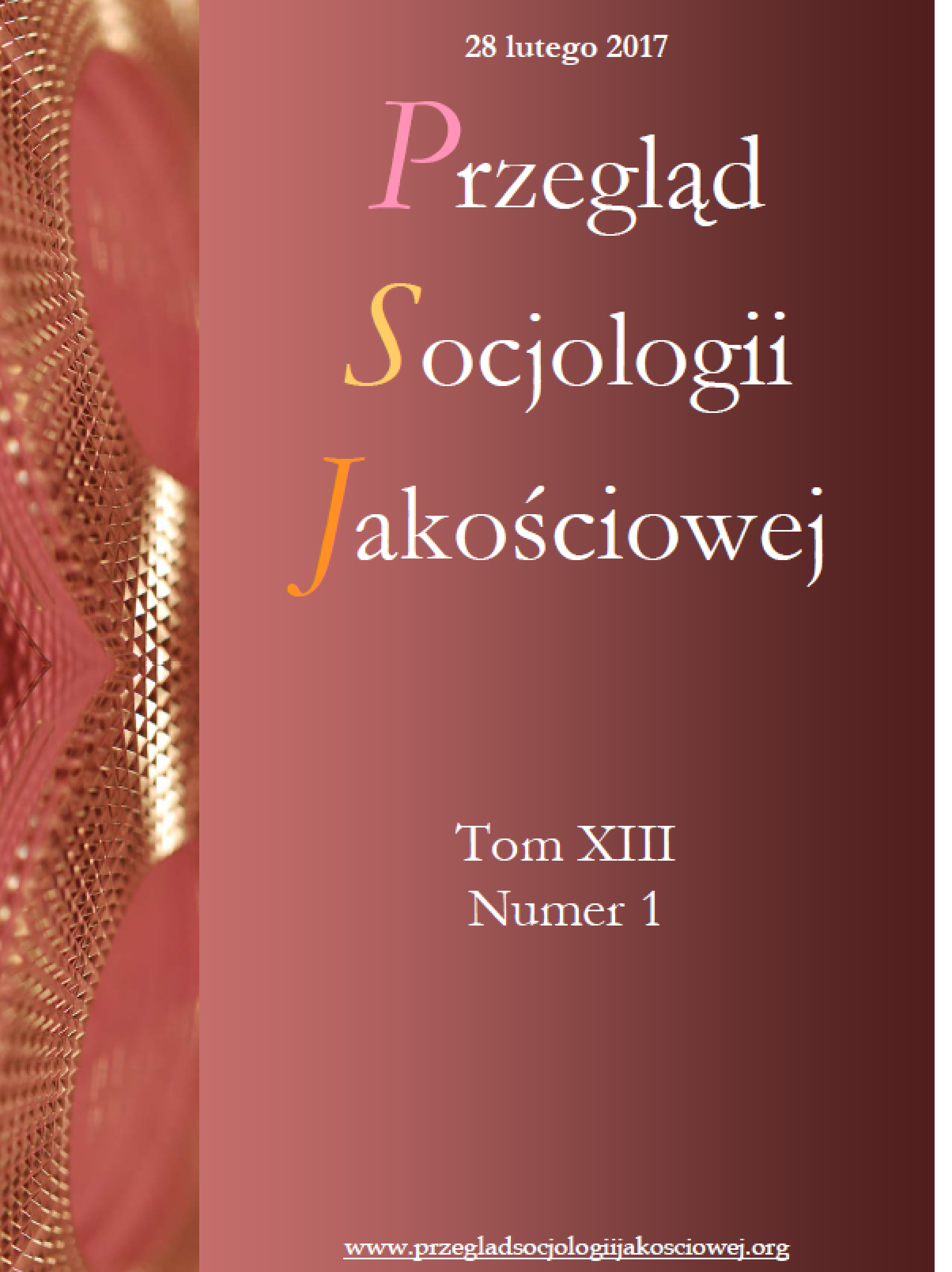Is Atheism a Religion? On Socio-Anthropologic Cognitive Imperialism and Problems That Follow
DOI:
https://doi.org/10.18778/1733-8069.13.1.06Keywords:
atheism, non-belief, definitions of religion, constructivism, ethics of scientific researchAbstract
The aim of the article is to show problems of a conceptual nature with defining non-religious people, as well as some ethical consequences of these problems. In the beginning I point to the frequent phenomenon of treating atheism as a kind of religion. I identify the sources of this phenomenon in a tendency among sociologists of religion to use inclusive and functional definitions of religion. From the point of view of the researcher of non-religion and non-religiousness it is a problem. Therefore, I call for using in this context definitions of religion suggested by researched actors themselves, which often have substantive character. In research practice it usually means using self-declaration as a definitional criterion of non-religion.
Downloads
References
Batorski, Dominik. 2009. “Korzystanie z technologii informacyjno-komunikacyjnych.” Pp. 281-309 in Diagnoza Społeczna 2009. Warunki i jakość życia Polaków, edited by Janusz Czapiński, Tomasz Panek. Warsaw: Rada Monitoringu Społecznego.
Google Scholar
Beckford, James. 2006. Teoria społeczna a religia. Cracow: NOMOS.
Google Scholar
Berger, Peter L. 1997. Święty baldachim. Elementy socjologicznej teorii religii. Cracow: NOMOS.
Google Scholar
Bernardes, Jon. 1993. “Responsibilities in Studying Postmodern Families.” Journal of Family Issues 14(1):35-49.
Google Scholar
DOI: https://doi.org/10.1177/0192513X93014001004
Blackford, Russell and Udo Schüklenk. 2014. 50 mitów o ateizmie. Warsaw: Wydawnictwo CiS.
Google Scholar
Borowik, Irena. 1997. “Socjologia religii Petera L. Bergera.” Pp. 7-25 in Święty baldachim. Elementy socjologicznej teorii religii, edited by Peter L. Berger. Cracow: NOMOS.
Google Scholar
Bullivant, Stephen. 2013. “Defining ‘Atheism.’” Pp. 11-21 in The Oxford Handbook of Atheism, edited by Stephen Bullivant and Michael Ruse. Oxford: Oxford University Press.
Google Scholar
DOI: https://doi.org/10.1093/oxfordhb/9780199644650.001.0001
Cragun, Ryan T. and Joseph H. Hammer. 2011. “‘One Person’s Apostate Is Another Person’s Convert’: What Terminology Tells Us About Pro-religious Hegemony in the Sociology of Religion.” Humanity and Society 35:149-175.
Google Scholar
DOI: https://doi.org/10.1177/016059761103500107
Cupitt, Don. 1998. Po Bogu. O przyszłości religii. Warsaw: Wydawnictwo WAB.
Google Scholar
de Botton, Alain. 2013. Religion for Atheists. A Non-Believer’s Guide to the Uses of Religion. London: Penguin.
Google Scholar
Demerath, N. J. III. 1984. “Program i prolegomena socjologii irreligii.” Pp. 362-373 in Socjologia religii. Wybór tekstów, edited by Franciszek Adamski. Cracow: WAM.
Google Scholar
Dobbelaere, Karel. 2003. “Socjologiczna analiza definicji religii.” Pp. 139-153 in Socjologia religii. Antologia tekstów, edited by Władysław Piwowarski. Cracow: NOMOS.
Google Scholar
Durkheim, Émile. 1990. Elementarne formy życia religijnego. System totemiczny w Australii. Warsaw: PWN.
Google Scholar
Durkheim, Émile. 2000. Zasady metody socjologicznej. Warsaw: WN PWN.
Google Scholar
Dworkin, Ronald. 2014. Religia bez Boga. Warsaw: Aletheia.
Google Scholar
Flynn, Tom, (ed.). 2007. The New Encyclopedia of Unbelief. Amherst, NY: Prometheus Books.
Google Scholar
Furseth, Inger and Pål Repstad. 2006. An Introduction to the Sociology of Religion. Classical and Contemporary Perspectives. Aldershot, Burlington: Ashgate.
Google Scholar
Grabowska, Mirosława. 1990. “Wywiad w badaniu zjawisk ‘trudnych.’ Przypadek polskiej religijności.” Kultura i Społeczeństwo 1:51-64.
Google Scholar
Guja, Jowita. 2009. “Główne problemy filozoficznej krytyki religii.” Studia Humanistyczne 7:133-146.
Google Scholar
Heelas, Paul. 2002. “The Spiritual Revolution: From ‘Religion’ to ‘Spirituality.’” Pp. 412-436 in Religions in the Modern World. Traditions and Transformations, edited by Linda Woodhead et al. London, New York: Routledge.
Google Scholar
Imos, Rafał. 2007. Wiara człowieka radzieckiego. Cracow: NOMOS.
Google Scholar
Kehrer, Günter. 1997. Wprowadzenie do socjologii religii. Cracow: NOMOS.
Google Scholar
Konecki, Krzysztof T. 2005 Ludzie i ich zwierzęta. Interakcjonistyczno – symboliczna analiza społecznego świata właścicieli zwierząt domowych. Warsaw: Scholar.
Google Scholar
Kula, Marcin. 2003. Religiopodobny komunizm. Cracow: NOMOS.
Google Scholar
Latour, Bruno. 2005. Reassembling the Social – An Introduction to Actor-Network Theory. Oxford: Oxford University Press.
Google Scholar
Libiszowska-Żółtkowska, Maria. 2004. “Definicje socjologiczne religii.” Pp. 66-69 in Leksykon socjologii religii. Zjawiska – badania – teorie, edited by Maria Libiszowska-Żółtkowska and Janusz Mariańskired. Warsaw: VERBINUM.
Google Scholar
Luckmann, Thomas. 2006. Niewidzialna religia. Problem religii we współczesnym społeczeństwie. Cracow: NOMOS.
Google Scholar
Martin, Michael. 2007. “Atheism and Religion.” Pp. 217-232 in The Cambridge Companion to Atheism, edited by Michael Martin. Cambridge: Cambridge University Press.
Google Scholar
DOI: https://doi.org/10.1017/CCOL0521842700.014
Omyliński, Janusz. n.d. Ateizm stał się już religią? Retrieved September 10, 2015 http://natemat.pl/32659,ateizm-stal-sie-juz-religia
Google Scholar
Pasquale, Frank L. 2007. “The ‘Nonreligious’ in the American Northwest.” Pp. 41-58 in Secularism and Secularity: Contemporary International Perspectives, edited by Barry A. Kosmin and ArielaKeysar. Hartford, CI: Institute for the Study of Secularism in Society & Culture.
Google Scholar
Stopes-Roe, Harry. 2007. “Religion.” Pp. 644-647 in The New Encyclopedia of Unbelief, edited by Tom Flynn. Amherst. NY: Prometheus Books.
Google Scholar
Szlendak, Tomasz. 2011. Socjologia rodziny. Ewolucja, historia, zróżnicowanie. Warsaw: WN PWN.
Google Scholar
Tyrała, Radosław. 2013. “Pozareligijna duchowość (polskich) niewierzących.” Studia Humanistyczne AGH 12(1):67-79.
Google Scholar
DOI: https://doi.org/10.7494/human.2013.12.3.67
Tyrała, Radosław. 2014a. Bez Boga na co dzień. Socjologia ateizmu i niewiary. Cracow: NOMOS.
Google Scholar
Tyrała, Radosław. 2014b. “Piętno a (de)materializacja kultury niereligijnej.” Studia Humanistyczne AGH 2:135-152.
Google Scholar
DOI: https://doi.org/10.7494/human.2014.13.2.135
Tyrała, Radosław. 2015. “Ateista, agnostyk, niewierzący… Socjologii nie-religii problemy z terminologią.” Studia Socjologiczne 1:149-181.
Google Scholar
Vernon, Glenn M. 1968. “The Religious ‘Nones’: A Neglected Category.” Journal for the Scientific Study of Religion 7(2)219-229.
Google Scholar
DOI: https://doi.org/10.2307/1384629
Weber, Max. 2002. Gospodarka i społeczeństwo. Zarys socjologii rozumiejącej. Warsaw: WN PWN.
Google Scholar
Downloads
Published
How to Cite
Issue
Section
License

This work is licensed under a Creative Commons Attribution-NonCommercial-NoDerivatives 4.0 International License.














